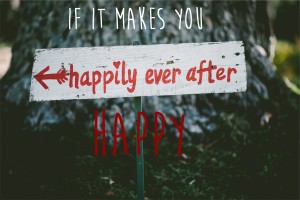
Maybe it was the most obvious with the guy who showed up at my gate a couple of years back. When I (um, naively) requested our guard open the gate for him, the guard respectfully bowed his head, an unspoken “no.” Maybe I should have been tipped off by the sweat beading on our visitor’s forehead, or the darting of his eyes as he presented me with the medical bill for his daughter, being treated for typhoid.
I remember praying fitfully while I listened to him, for wisdom from the God who actually knew this guy’s story. From what I know about African ways with money, Super White Woman! swooping in to save the day seemed to disintegrate what his community did actually have to offer. I declined his offer for cash. He turned away, angry and possibly hopeless (I thought) that he was no closer to a solution for his daughter.
It was only after I watched him trudge up the hill that my guard explained this man had been the neighborhood con artist for years, with his photo displayed nearby as a warning. I thanked my guard for his vigilant protection of us, thanked God for stepping in, and probably went inside to reapply more deodorant after all that stress sweat.
Allow me to voice what has lately crystallized in our work not only with the poor, but with all our relationships:
People’s pleasure and satisfaction with us is not a trustworthy indicator of whether we’re loving them well.
Perhaps this principle surfaces as more obvious in someone who deliberately tries to deceive. But in the end, we all are subject to our own deceit, to our want blinding us to what we truly need. And we’ve all been the recipients of the wrong end of this: from the person who thinks we should have contributed more, had more thoroughly planned for them, had pleased them. It rends families, isolates us in relationships.
‘Course, I’m still 100% responsible for even the smallest iota of truth in someone’s frustration with me—which honestly, I chronically and vastly underestimate. (I like the words of author Gary Thomas: I always underestimate the impact of my sin on other people.)
Emotion is one valuable indicator–not so much of truth but of ourselves. It’s part of the image of God, yet still sorely tainted. It’s even easy to label what we want or feel we should do as “having peace” (i.e. from God). Feelings are symptoms, and valuable for what they reveal of our own (and others’) beliefs, values, and perspectives. But sometimes peace looks like sweating blood in a dark, lonely garden—and sometimes false peace justifies decisions that fly in the face of Scripture and real love.
Compassion and passionate hearts should unquestionably motivate us. Yet so often I find I am simply afraid of ambiguity (what if I don’t have a clear idea from God?). Or of someone feeling bad. Or not liking me. Or myself looking bad.
For those like me eager to serve generously, to please thoroughly—maybe you need the encouragement I do, that what people feel and expect is not the true measure of what’s loving for them. Luke 6:26 still twists in my people-pleasing gut: Woe to you, when all people speak well of you, for so their fathers did to the false prophets.
And there’s always the reminder to let each one of you speak the truth with his neighbor, for we are members one of another (Ephesians 3:25). As in, not simply what your friend or your wife or your mother-in-law wishes you would say.
The kicker? My own feelings aren’t even a fair test of how I love or am being loved. Paul reasons, I am not aware of anything against myself, but I am not thereby acquitted. It is the Lord who judges me (1 Corinthians 4:4).
Maybe it’s easier to imagine ourselves as addicts, to some extent. You may have read this post on the importance of knowing our “holes” and the holes of our kids—those pet idols of ours we feed; those things we look to for fulfillment and hope. We cherish what we look to for filling our holes. We can’t imagine life without them! And yet—the idea of love is generally don’t feed the idols.
What felt precious to me–being compassionate, being seen as compassionate, hammering out a difference in poverty–nearly usurped loving the man at my gate (and by effect, our community) well. They very nearly surpassed their appropriate, good role, and triumphed as more important than what was best for the person in front of me.
I guess this runs fiercely against the grain in a culture where the pursuit of happiness rules. But we all have a little con artist in us. And we simply don’t always know what is best for us, how we’re best loved and cared for.
Like this? You might like:
Just tell me what I want to hear
6 Ways to Take Your Relationships Deeper in 2016












![Now You're Speaking My [Love] Language Now You're Speaking My [Love] Language](https://www.janelbreitenstein.com/wp-content/uploads/2015/08/love-languages-text-1.jpg)





Leave a Reply